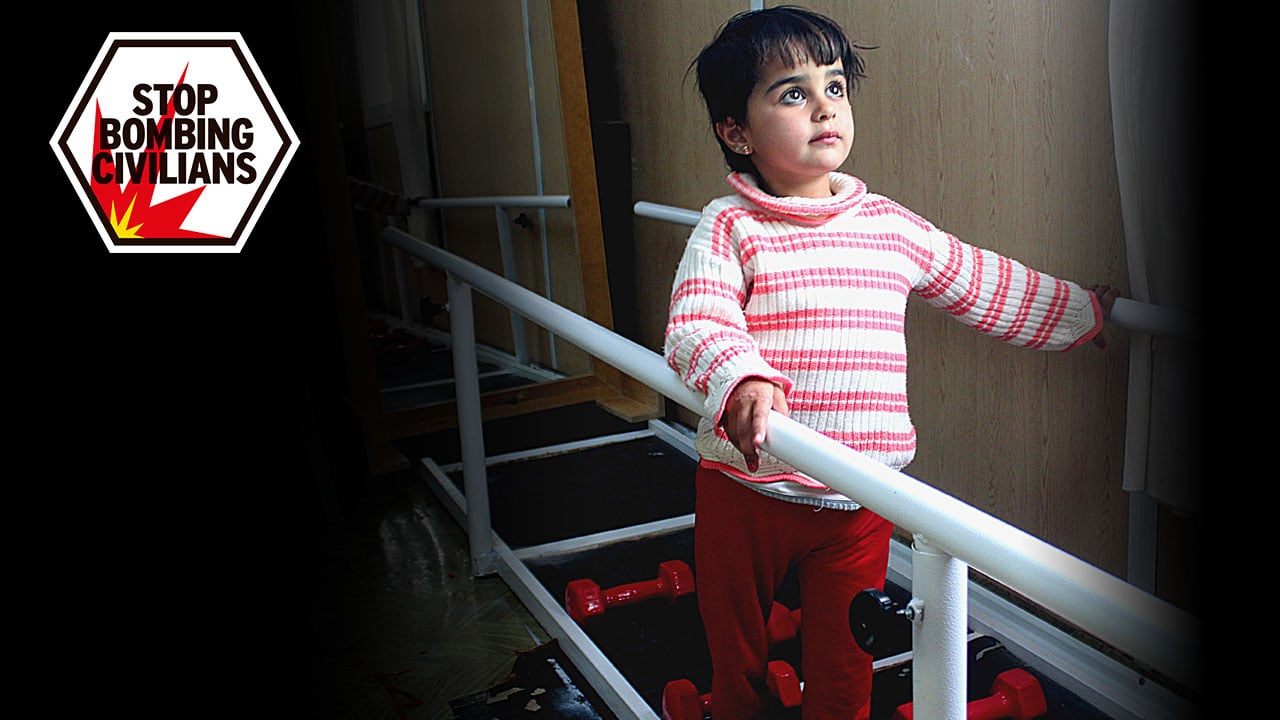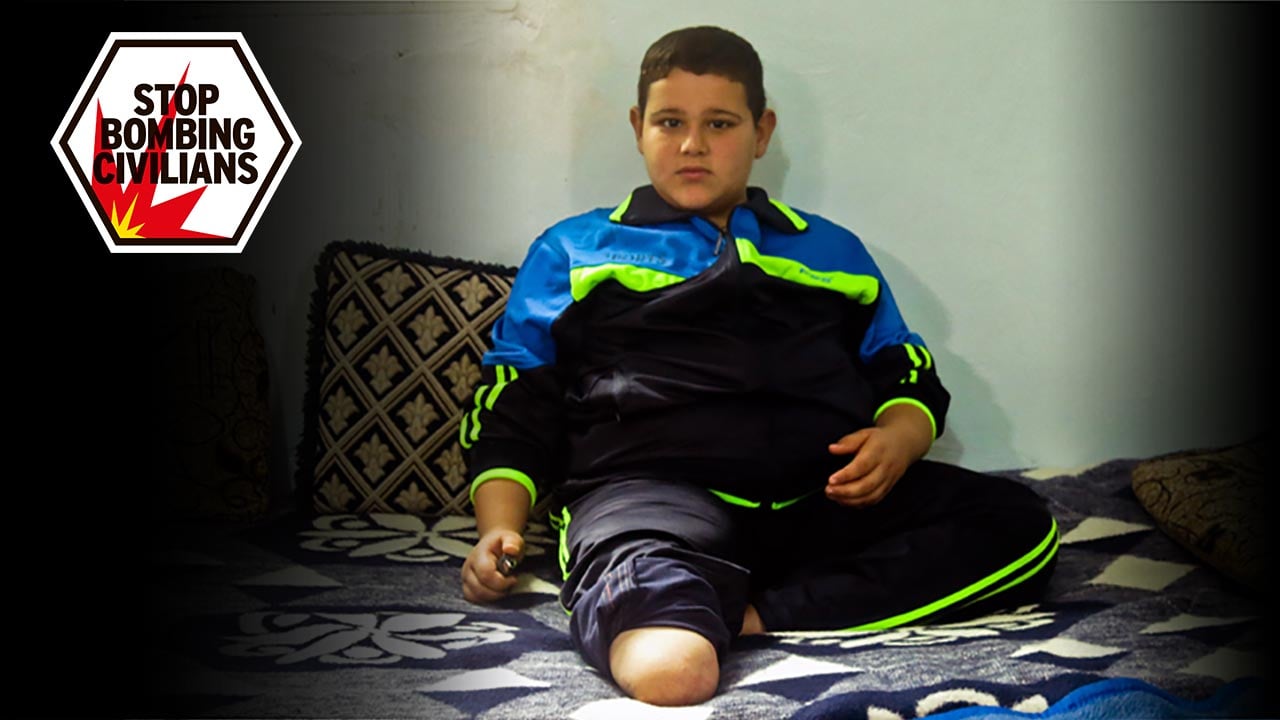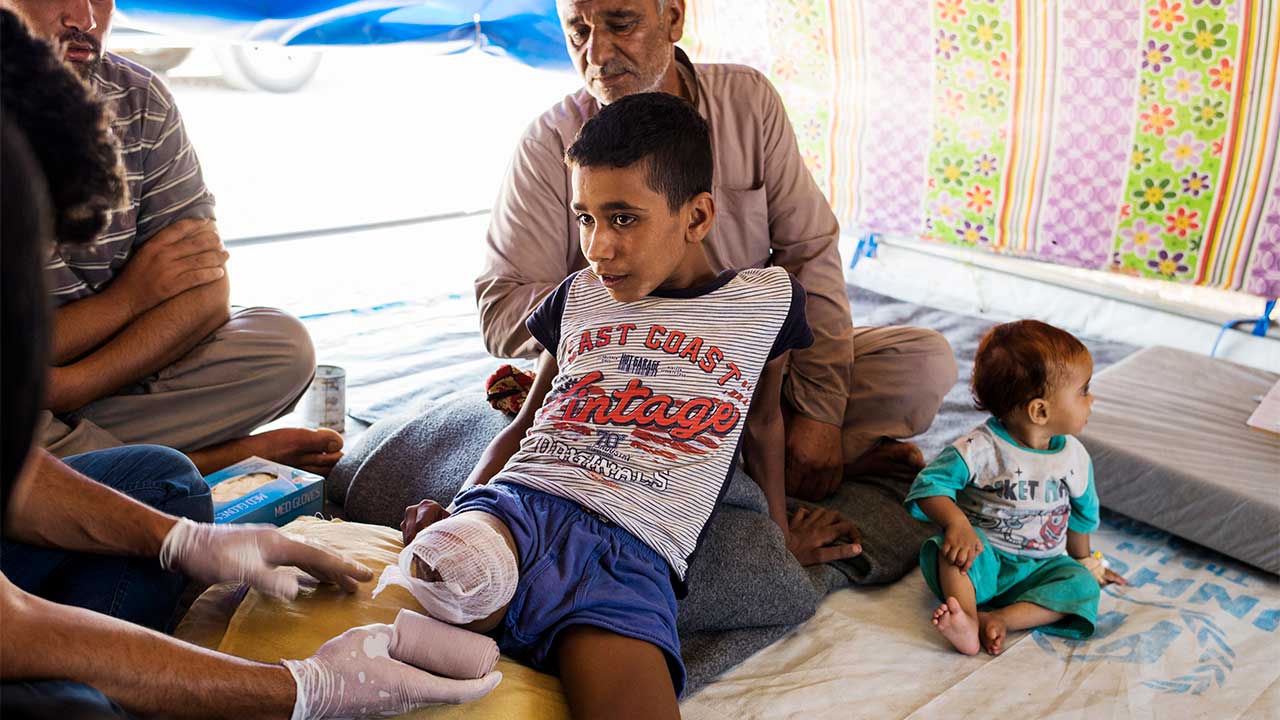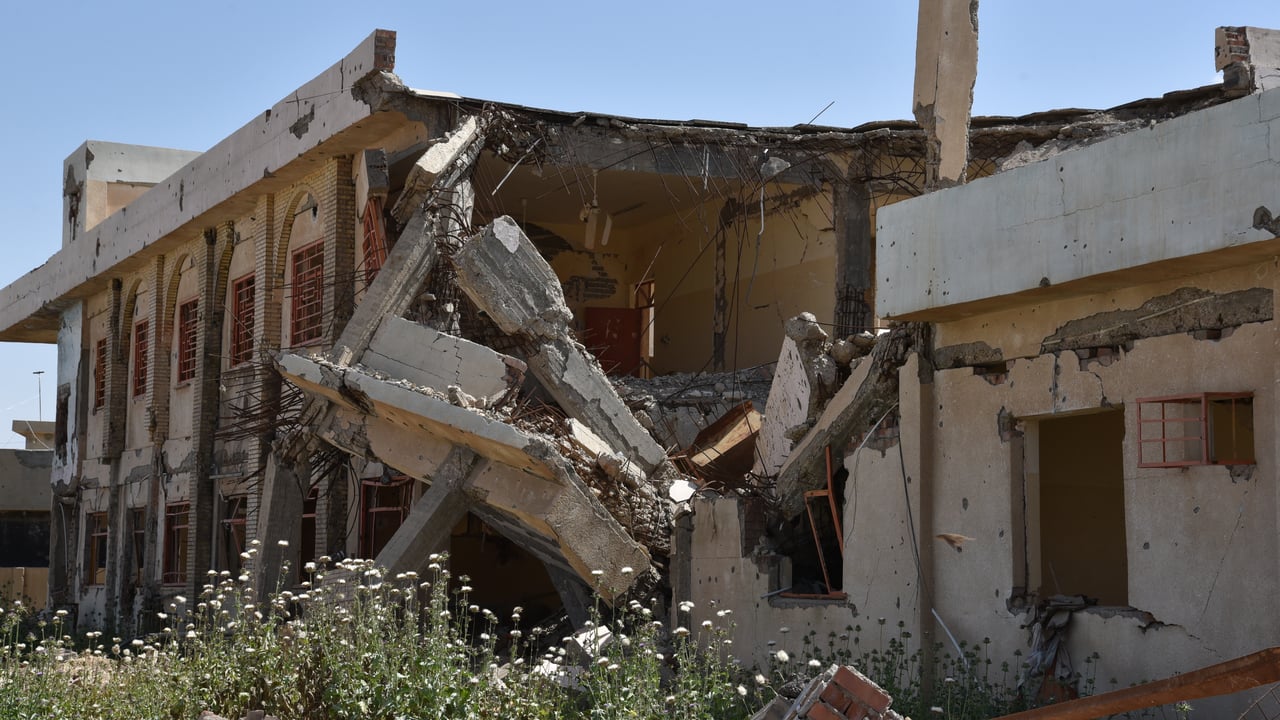Increasingly, armed conflicts are taking place in populated urban areas, where explosive weapons are being used on a massive scale, killing and injuring thousands of civilians.
Analysis over the last 10 years shows that when explosive weapons are used in populated areas a shocking 90% of casualties are civilians. In 2020 alone, 18,747 people were killed or injured by explosive weapons. The death toll keeps on rising.
So many people have been left injured or with their lives and livelihoods completely ruined. It is our mission at Humanity & Inclusion to ensure that these innocent people living in war-torn countries are not forgotten and to put an end to the indiscriminate bombing of towns and cities.
Civilians in places like Palestine, Ukraine, Syria, Iraq, Yemen, and Afghanistan are innocent victims of war— individuals, children, and families who are going about their daily lives when these bombs strike. They end up traumatized, with physical and psychological injuries. And many have to endure the loss of loved ones.
Children like Kamal, 15, from Syria:










